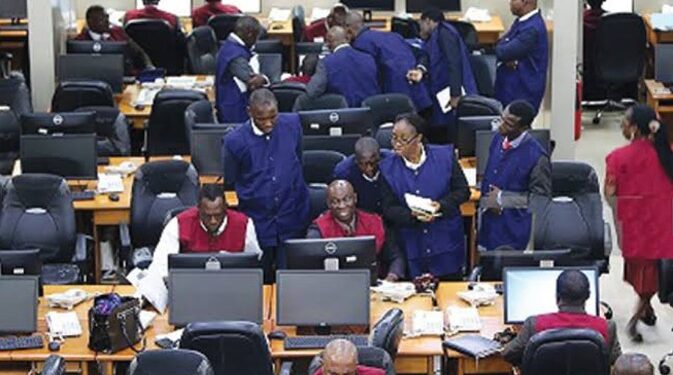Market Trends
CBEX Reopens Amid SEC Ban and N1.2tn Fraud Investigation

Despite facing a N1.2 trillion digital trading scandal that reportedly affected over 600,000 Nigerians, the controversial Crypto Bridge Exchange (CBEX) has resumed operations and introduced new withdrawal options in a bid to regain investor trust.
Two traders using the CBEX platform confirmed on Wednesday that the exchange has discreetly restarted services, allowing new user registrations, trading, and profit withdrawals, even as regulatory scrutiny continues.
Sources revealed that CBEX is undergoing an insurance verification process and an external audit by a UK-based firm to determine the actual losses, following the platform’s collapse in April. They added that existing investors, many of whom have been locked out of their funds, might begin accessing their money from June 25, once the audit concludes.
This move comes shortly after the Securities and Exchange Commission labeled the platform illegal, and the Economic and Financial Crimes Commission (EFCC) confirmed an investigation into its activities.
CBEX had promised 100% returns within 30 days using artificial intelligence for trading. The platform began operations in 2024 after registration with the Corporate Affairs Commission in September and receiving a clearance from the EFCC’s anti-money laundering unit in January 2025. However, it crashed on April 14, resulting in massive losses.
The EFCC has declared eight individuals wanted in connection with promoting the platform. These include Johnson Oteno, Israel Mbaluka, Joseph Michiro, Serah Michiro, Adefowora Olanipekun, Adefowora Oluwanisola, Emmanuel Uko, and Seyi Oloyede. One key figure, Adefowora Abiodun, recently turned himself in for questioning.
Despite regulatory warnings, CBEX has resumed limited operations. According to sources, only newly created accounts can currently process withdrawals. Older accounts—allegedly erased during the crash—remain locked.
One trader explained that the platform blames a 100% AI trading loss for wiping out user funds. The platform now claims to be insured, and investors are being asked to pay between $100 and $200 to reactivate their old accounts. These restored accounts can trade but cannot withdraw until the UK audit concludes.
Starting June 25, investors may withdraw 50% of their capital, with the balance accessible from August 25, provided they complete verification. Fresh accounts, however, can deposit and withdraw freely, with no audit restrictions.
Promoters have denied allegations of fraud, asserting that the audit is to clarify the true amount lost—allegedly closer to N126 billion rather than the publicly reported N1.2 trillion.
A Telegram group admin named Laura claimed the crash was caused by a cyberattack targeting the AI, and denied accusations that funds were misappropriated. She also noted that the UK government is investigating the incident, while some users have begun receiving insurance compensation.
Separately, the EFCC declared a foreign national, Elie Bitar, wanted in connection with the CBEX scheme. His last known location was in Lekki, Lagos, and the agency has urged the public to provide information on his whereabouts.
Meanwhile, the Nigerian Financial Intelligence Unit (NFIU) has issued an advisory warning the public against unregulated digital investment platforms, identifying several—such as eWealth Connect, WWCoin (TOFRO), Delux, and ADK—as high-risk operations with Ponzi-like characteristics.
The NFIU warned against platforms offering unrealistic returns, relying on referral systems, issuing unlisted tokens, and pressuring users to invest quickly. The advisory emphasized due diligence, proper licensing, and the need to consult financial professionals before investing.
The Securities and Exchange Commission also warned Nigerians not to equate Corporate Affairs Commission registration or EFCC certification with investment legitimacy. SEC Director-General Dr. Emomotimi Agama emphasized that these platforms often exploit the public’s lack of awareness, urging people to report suspicious schemes.



